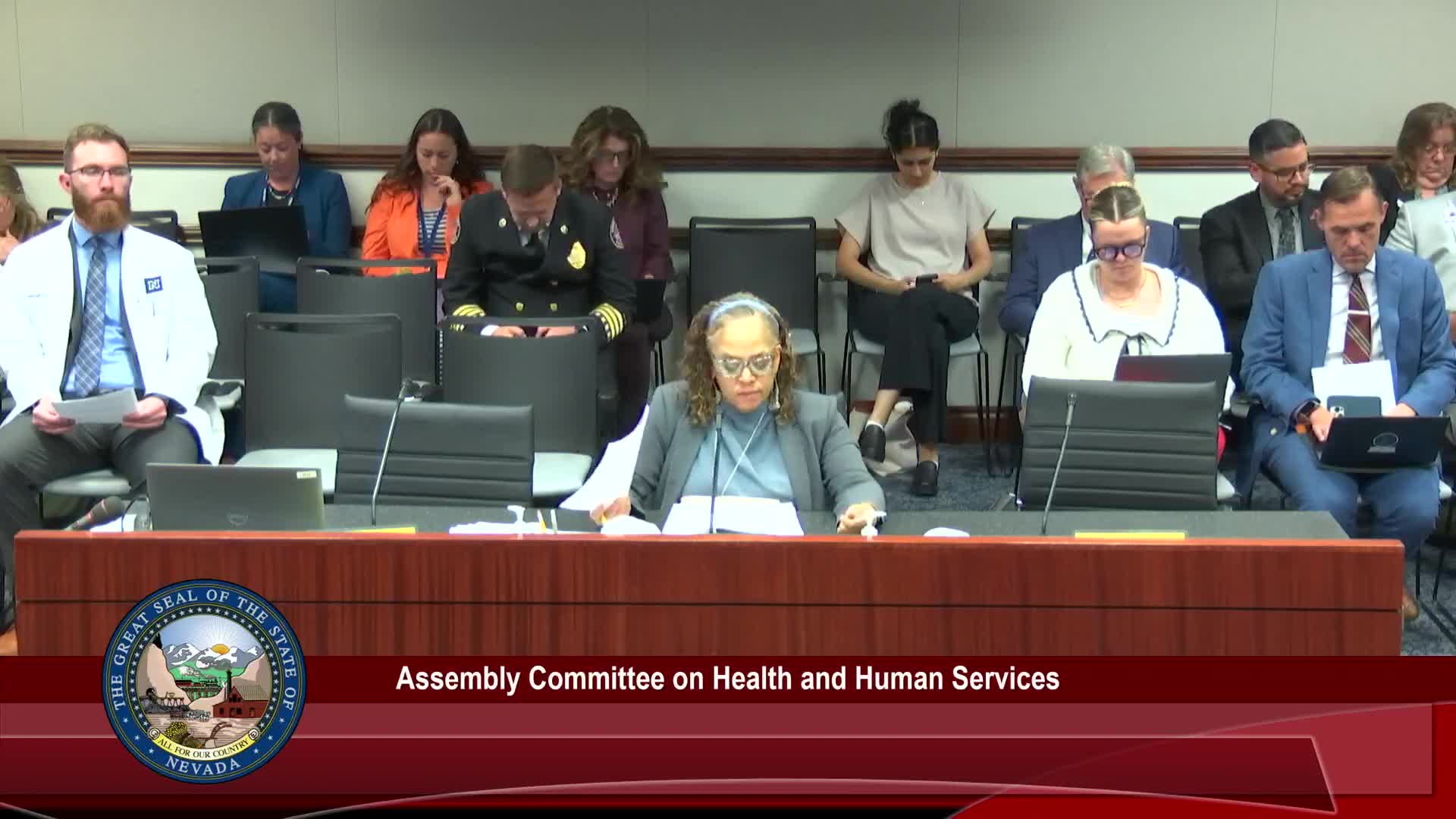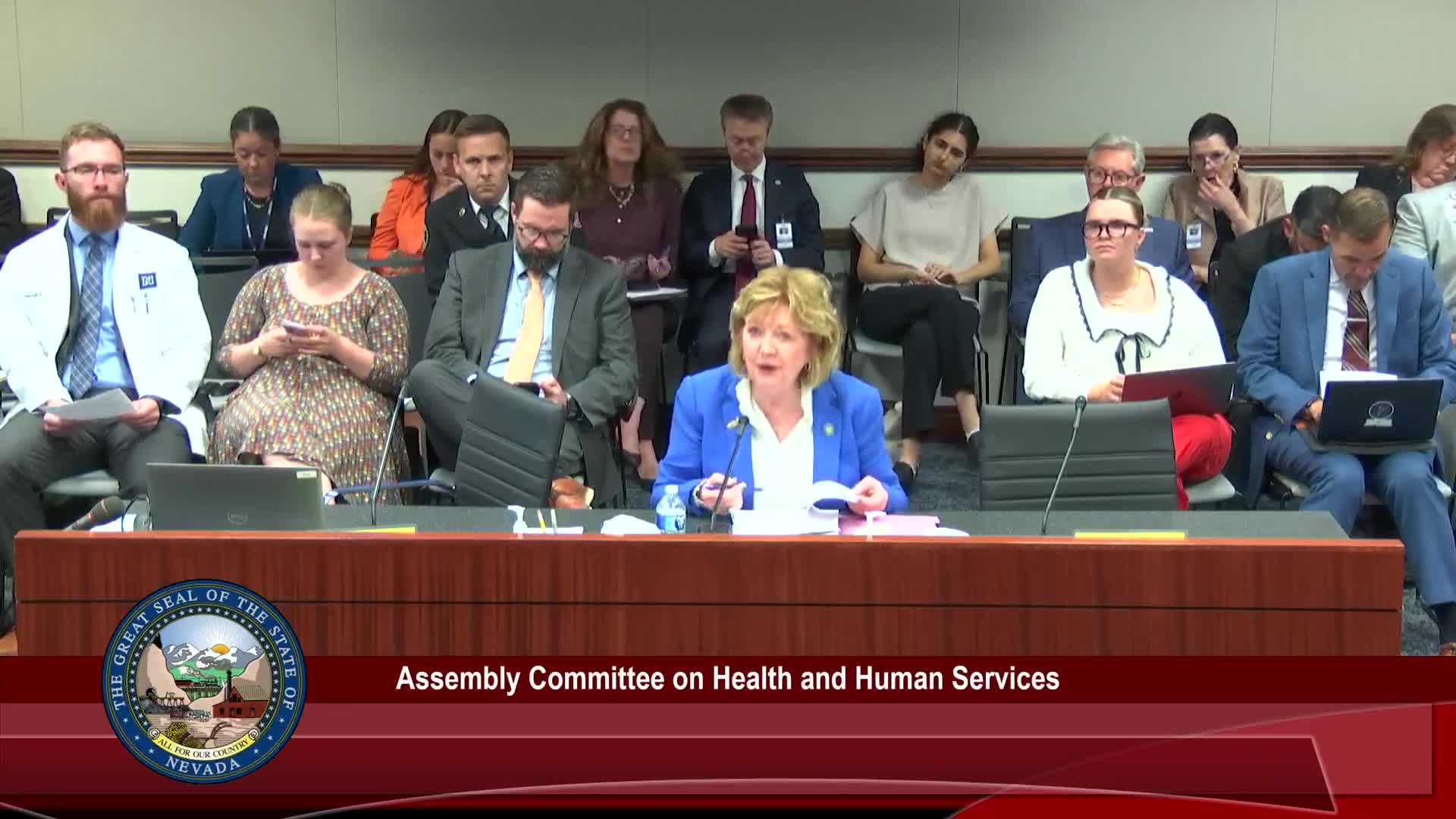Article not found
This article is no longer available. But don't worry—we've gathered other articles that discuss the same topic.

Nevada committee advances bill to create Tribal Health Authority Council, add Medicaid presumptive eligibility for tribal members

Committee advances bill to let more qualified clinicians diagnose autism to speed treatment access

Committee advances bill allowing self-assessment to boost Medicaid reimbursement for ambulance providers

Panel advances SB329 to require dementia‑awareness training for emergency medical personnel

Committee advances bill to authorize Medicaid coverage for medical respite care for people experiencing homelessness

